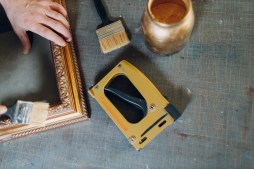The Ultimate Guide to DIY Home Renovation: Dos and Don’ts for Success

Are you considering taking on a DIY home renovation project? Whether you’re looking to update your kitchen, remodel your bathroom, or give your living room a fresh new look, tackling a home renovation project can be both exciting and daunting. To ensure that your DIY endeavor is successful, it’s important to be aware of the dos and don’ts of home renovation. In this ultimate guide, we’ll explore the essential dos and don’ts that will help you navigate through your DIY home renovation with confidence.
The Dos of DIY Home Renovation
When it comes to tackling a home renovation project on your own, there are several key dos that will set you up for success.
Do Plan Ahead: Before diving into any DIY project, it’s crucial to plan ahead. Start by setting a budget and creating a detailed timeline. Research the materials and tools you’ll need, and make sure to account for any necessary permits or inspections. Planning ahead will help you stay organized throughout the entire process.
Do Your Research: Take the time to educate yourself about the specific renovations you’re planning to undertake. Watch tutorial videos, read articles, or even consider taking a basic carpentry or plumbing course. The more knowledge you have about the project at hand, the better equipped you’ll be to tackle it successfully.
Do Invest in Quality Tools: Investing in high-quality tools may seem like an unnecessary expense at first, but they can make all the difference in the outcome of your DIY project. Good tools not only make tasks easier but also ensure safety during construction.
Do Start Small: If this is your first time taking on a DIY home renovation project, it’s advisable to start small rather than jumping into something too ambitious right away. Begin with smaller tasks such as painting a room or installing new light fixtures before moving on to larger projects like kitchen remodeling or bathroom renovations.
The Don’ts of DIY Home Renovation
While there are several dos that can contribute to the success of your DIY home renovation project, there are also some important don’ts that you should keep in mind to avoid common pitfalls.
Don’t Skimp on Safety Precautions: Safety should always be a top priority when it comes to DIY home renovation. Make sure to wear protective gear such as goggles, gloves, and a dust mask when working with power tools or handling hazardous materials. Additionally, be mindful of electrical wiring and turn off the power before doing any electrical work.
Don’t Rush the Process: Rome wasn’t built in a day, and neither should your DIY renovation project. Taking shortcuts or rushing through the process can lead to mistakes or subpar results. Take your time, follow instructions carefully, and don’t hesitate to ask for help if needed.
Don’t Overlook Permits and Regulations: Depending on the scale of your renovation project, you may need permits or have to comply with certain building codes and regulations. Failing to obtain necessary permits or violating regulations can result in costly fines or even legal consequences. Do your due diligence and ensure that you are following all applicable rules and regulations.
Don’t Underestimate Your Abilities: While DIY home renovation can be empowering, it’s important to know your limits. If a project requires specialized skills beyond your capabilities, it’s best to hire a professional rather than risk causing damage or compromising safety.
Hiring Professionals When Necessary
Although many homeowners prefer the satisfaction of completing their own renovations, sometimes it’s best to leave certain tasks in the hands of professionals.
Electrical Work: Electrical work requires specialized knowledge and expertise due to its potential hazards if not done correctly. Hiring a licensed electrician is essential for ensuring both safety and compliance with electrical codes.
Plumbing: Similar to electrical work, plumbing is a complex system that should be handled by professionals. Incorrectly installed or repaired plumbing can lead to leaks, water damage, and costly repairs down the line.
Structural Changes: If your renovation project involves structural changes such as removing load-bearing walls or altering the foundation, it’s crucial to consult with a structural engineer or a licensed contractor who specializes in such modifications. They have the knowledge and experience to ensure that your home remains structurally sound.
Conclusion
Embarking on a DIY home renovation project can be an exciting and rewarding experience. By following the dos and don’ts outlined in this ultimate guide, you’ll be well-equipped to tackle your project with confidence. Remember to plan ahead, do your research, invest in quality tools, and start small if you’re new to DIY renovations. Above all, prioritize safety and know when it’s best to hire professionals for certain tasks. With careful planning and execution, you’ll be able to transform your home into the space of your dreams while avoiding common pitfalls along the way.
This text was generated using a large language model, and select text has been reviewed and moderated for purposes such as readability.





